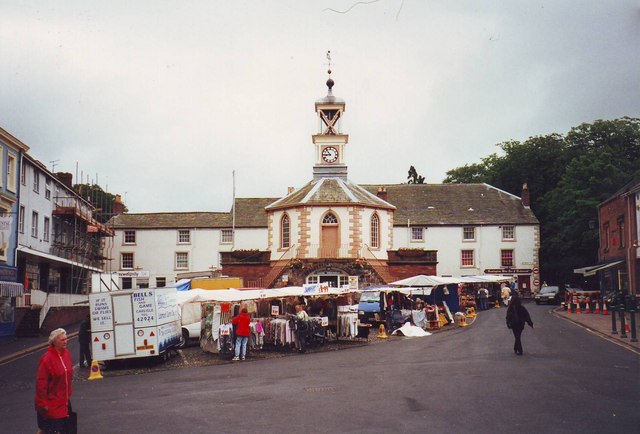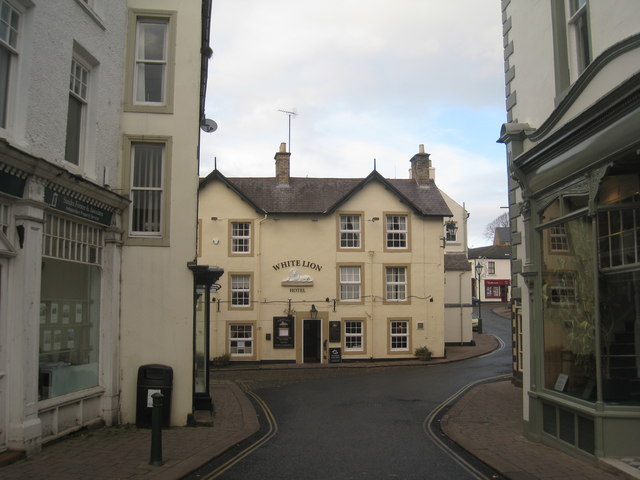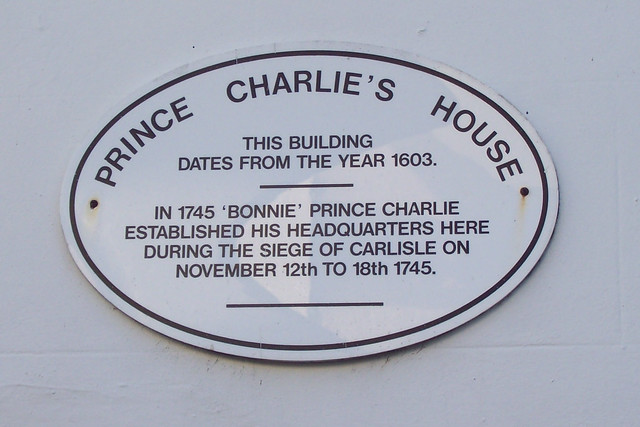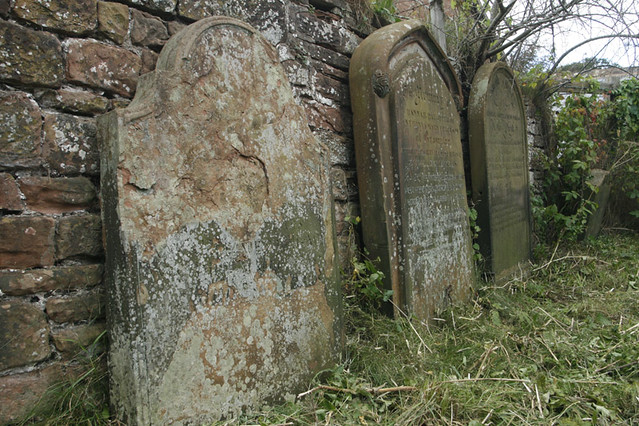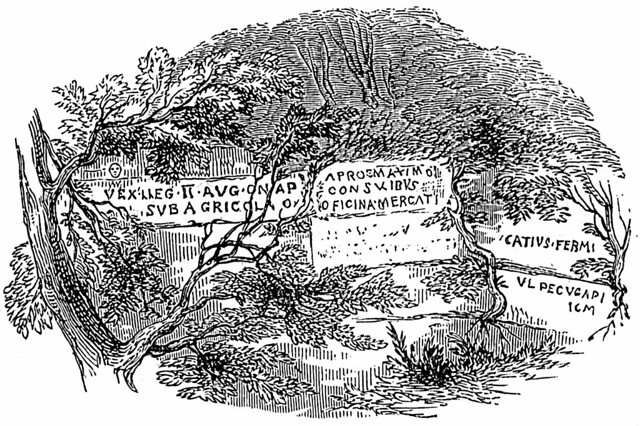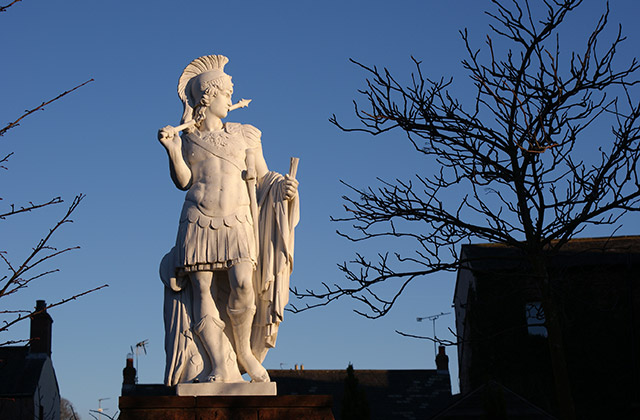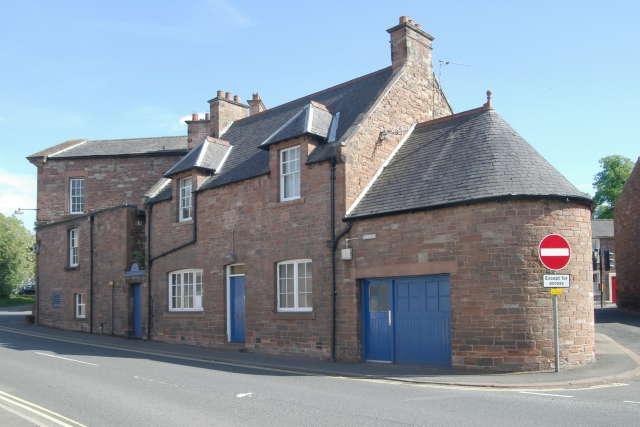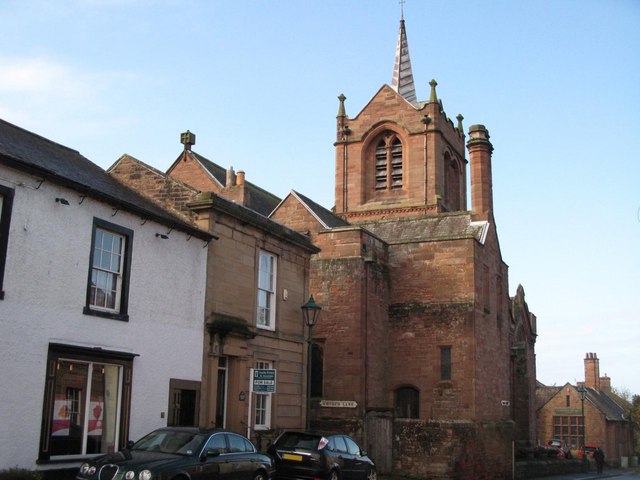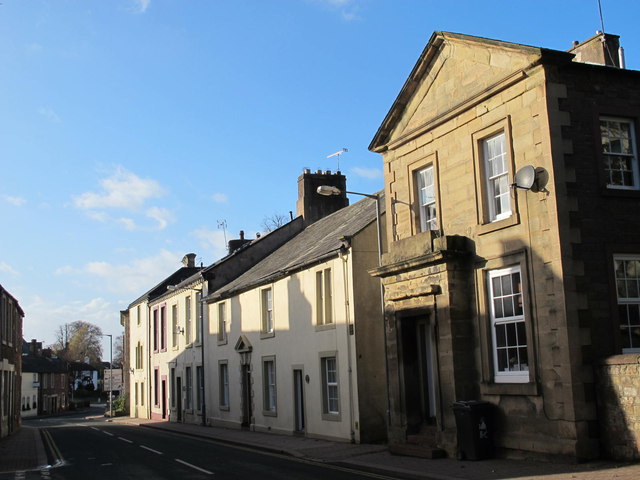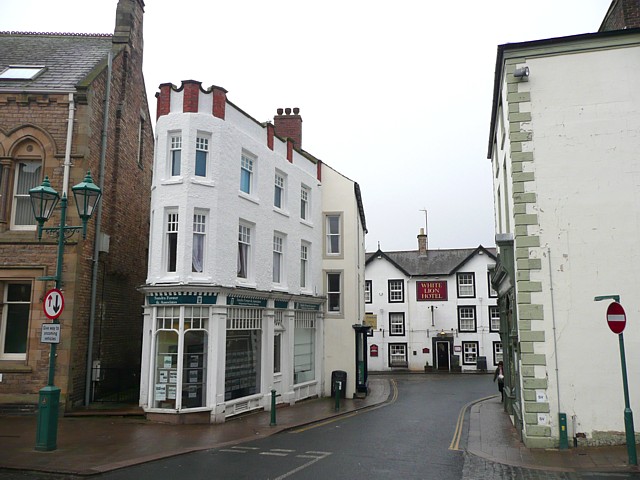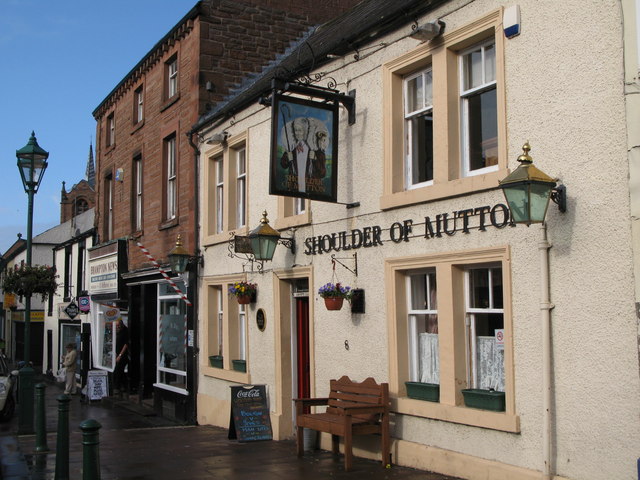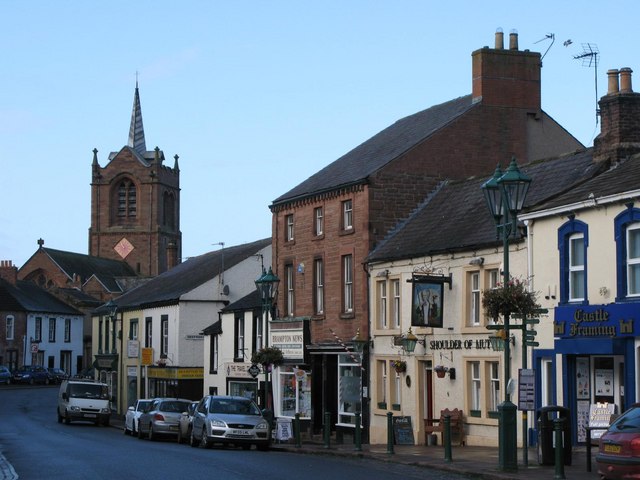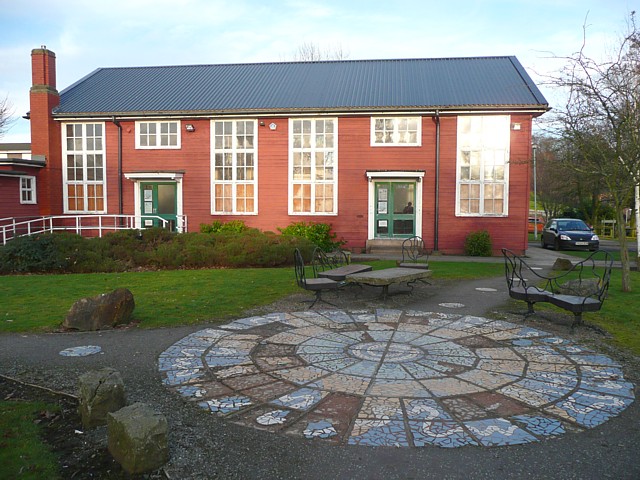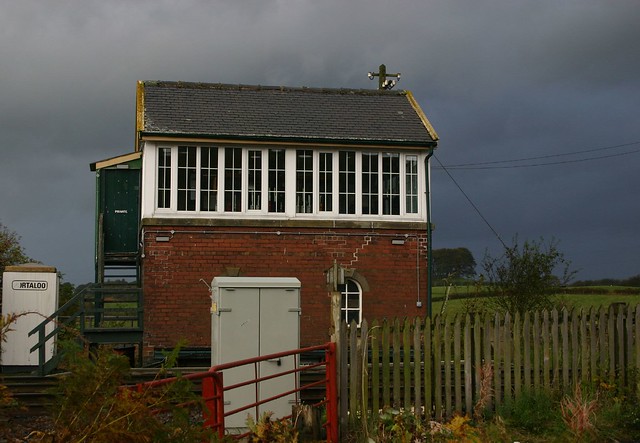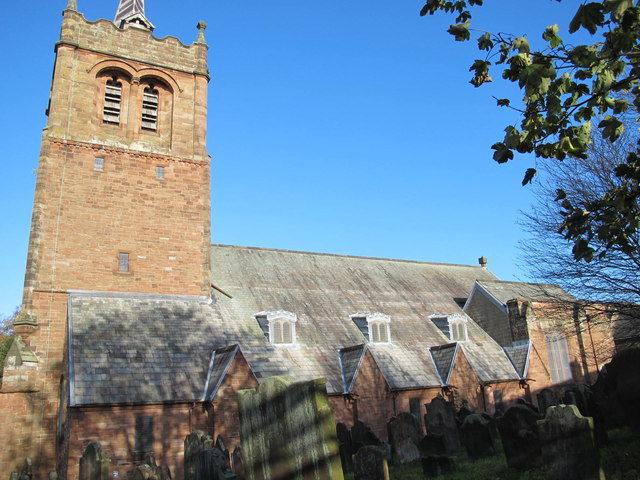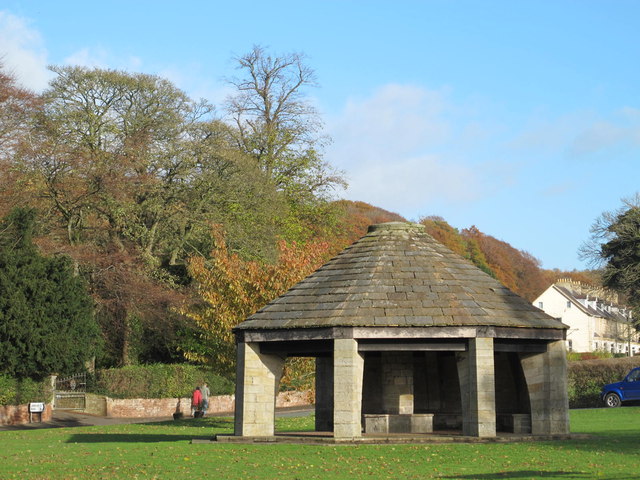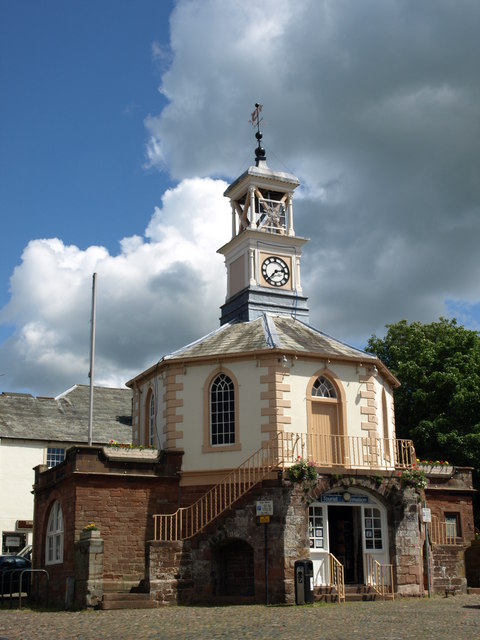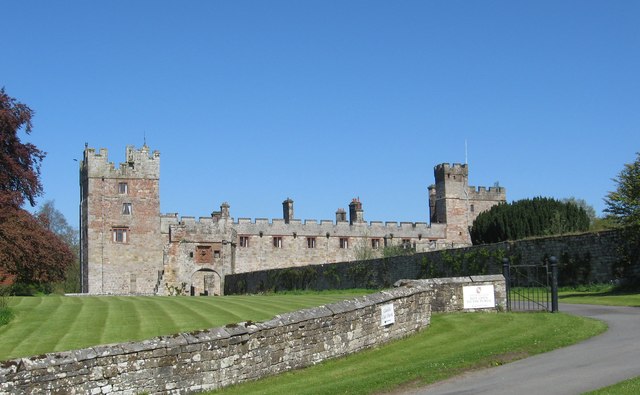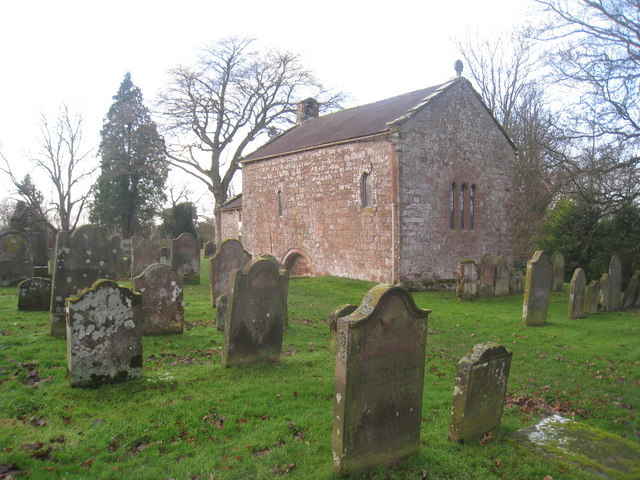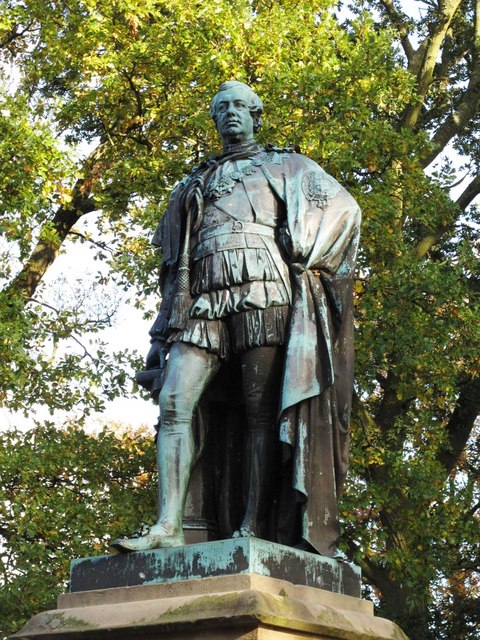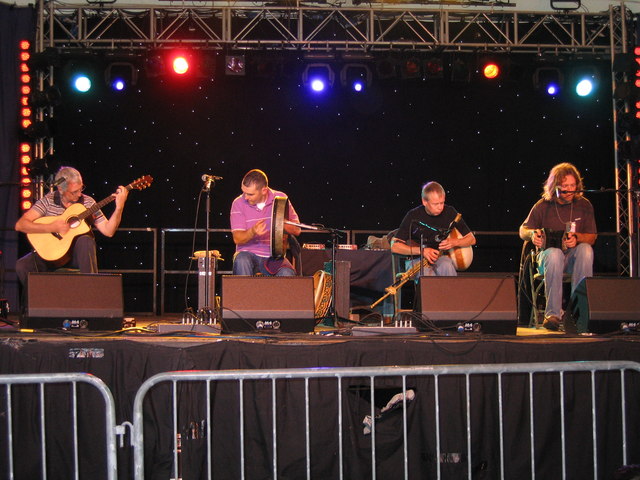Topics > Brampton
Brampton
Brampton is a market town in Cumbria, located about 9 miles east of the Carlisle. The Market Square is a focal point of the town, on which Moot Hall (1817) is a distinctive feature. Historically, Brampton was an ancient parish in the county of Cumberland, which included the townships of Easby and Naworth. The old parish church (C12th) was located by the River Irthing, about a mile north-west of the town. As the population Brampton grew, St Martin's Church was bulit in the town in 1878. Today, the town and surrounding area form Brampton Civil Parish and fall within the Cumberland unitary authority area.
Not to be confused with Brampton in the Westmorland & Furness district of Cumbria.
Brampton is a small market town, civil parish and electoral ward within the City of Carlisle district of Cumbria, England, about 9 miles (14 km) east of Carlisle and 2 miles (3.2 km) south of Hadrian's Wall. Historically part of Cumberland, it is situated off the A69 road which bypasses it. Brampton railway station, on the Newcastle and Carlisle Railway, is about a mile outside the town, near the hamlet of Milton.
St Martin's Church is famous as the only church designed by the Pre-Raphaelite architect Philip Webb, and contains one of the most exquisite sets of stained glass windows designed by Sir Edward Burne-Jones, and executed in the William Morris studio.
History
The town was founded in the 7th century as an Anglian settlement.
Brampton was granted a Market Charter in 1252 by King Henry III, and became a market town as a result.
During the Jacobite rising of 1745, Charles Edward Stuart stayed in the town for one night, marked by a plaque on the wall of the building (a shoe shop) currently occupying the location; here he received the Mayor of Carlisle who had been summoned to Brampton to surrender the city to the Young Pretender. The Capon Tree Monument, to the south of the town centre, commemorates the 1746 hanging of six Jacobites from the branches of the Capon Tree, Brampton's hitherto traditional trysting place.
In 1817 the Earl of Carlisle built the octagonal Moot Hall, which is in the centre of Brampton and houses the Tourist Information Centre. It replaced a 1648 building which was once used by Oliver Cromwell to house prisoners.
Much of Brampton consists of historic buildings built of the local red sandstone.
Education
Brampton's secondary school is the William Howard School, known as Irthing Valley School until 1980 when it was amalgamated with Brampton's White House School and took on a larger catchment area, with pupils from as far away as Alston and Penrith.
Culture
William Howard School was host to "Brampton Live" every summer, an ever-growing music festival that, since its first appearance in 1995, become the largest folk/roots/world music festival in the North of England. Major artists have included the Levellers, the Waterboys, Egudo Embako, Richard Thompson, Suzanne Vega, Loudon Wainwright III, Altan, Tommy Emmanuel, Seth Lakeman and many others. The last "Brampton Live" took place in 2009 and has been, to a certain extent, replaced in 2012 by the "Stepping Stones Festival" organised by Maddy Prior (of Steeleye Span) held in early May at the Brampton Community Centre.
Sport
The Brampton to Carlisle 10 Mile Road Race organised by Border Harriers & Athletic Club is the oldest 10 mile road race in the United Kingdom and is held in November. The first race was completed in 1952. Previous winners include Steve Cram and Ron Hill.
Notable residents
Geoff Twentyman, a footballer who made over 150 appearances each for both Carlisle United and Liverpool, was born and brought up in Brampton; as a scout for Liverpool he recommended the likes of Kevin Keegan, John Toshack, Peter Beardsley and John Barnes, amongst others, to the managers he worked under. Altogether he spent twenty years as head scout of Liverpool F.C.
Fairtrade status
Brampton was granted Fairtrade status on 6 January 2005, becoming one of the first hundred towns in the UK to be recognised in this way. Brampton Primary School was awarded Fairtrade status in Spring 2007 and RAF Spadeadam became Britain's first military base to sign up to Fairtrade.
Brampton and Beyond Community Trust
Brampton and Beyond Community Trust is a community-based development trust serving Brampton and the surrounding area in north east Cumbria. The Trust became a registered company and a registered charity in July 2010. The Trust aims to provide accessible, affordable and responsive services for local people and seeks to be self-financing. In 2011, the Brampton and Beyond Community Trust formally took over the assets of Brampton Community Association together with responsibility for the operation of the Brampton Community Centre.
Anaerobic digester proposal
Brampton and Beyond Energy (BABE) wants to construct an anaerobic digester on the Townfoot Industrial Estate in Brampton. The project would cost about £1m and it would be expected to make £60,000 profit each year, turning silage and slurry into electricity. Opponents of the proposal cite concerns over odour, noise and the location. The Parish Council discussed the proposal at an emergency meeting at the end of February 2014.
Walkers are Welcome
In 2011, Brampton became the 66th town in the United Kingdom and the second in Cumbria to gain Walkers are Welcome status.
Visit the page: Brampton, Carlisle for references and further details. You can contribute to this article on Wikipedia.
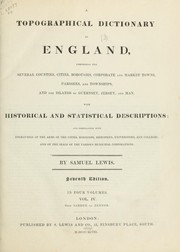
Co-Curate Page
Brampton (Carlisle), 1848
- BRAMPTON (St. Martin), a market-town and parish, and the head of a union, in Eskdale ward, E. division of Cumberland; containing, with the townships of Easby and Naworth, 3,304 inhabitants, …
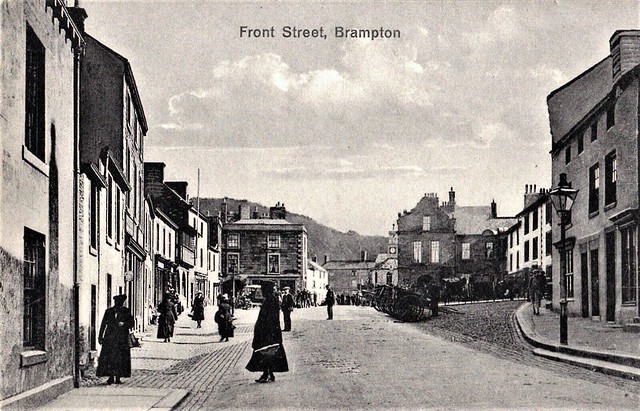
from Flickr (flickr)
CIRCA 1910 POSTCAR FRONT STREET, BRAMPTON, CUMBRIA, WESTMORLAND
Pinned by Peter Smith
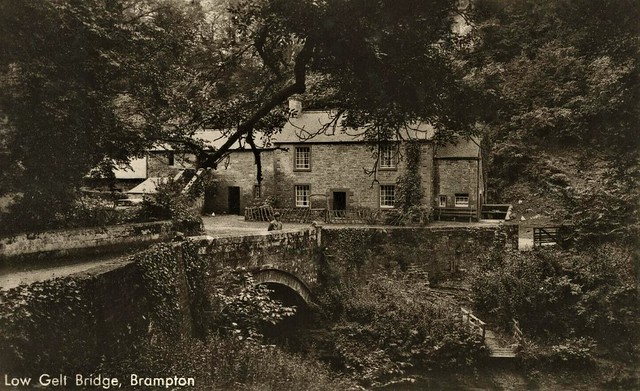
from Flickr (flickr)
Low Gelt Bridge Brampton Cumberland Vintage Real Photograph Postcard R4
Pinned by Peter Smith


Co-Curate Page
Brampton (Carlisle), 1848
- BRAMPTON (St. Martin), a market-town and parish, and the head of a union, in Eskdale ward, E. division of Cumberland; containing, with the townships of Easby and Naworth, 3,304 inhabitants, …

from Flickr (flickr)
CIRCA 1910 POSTCAR FRONT STREET, BRAMPTON, CUMBRIA, WESTMORLAND
Pinned by Peter Smith

from Flickr (flickr)
Low Gelt Bridge Brampton Cumberland Vintage Real Photograph Postcard R4
Pinned by Peter Smith
